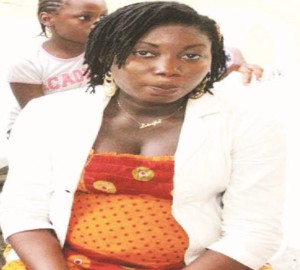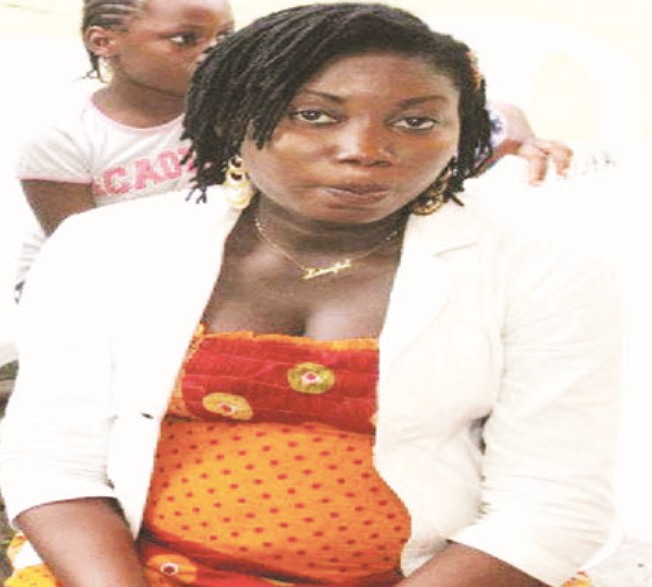
By Franka Osakwe
Forty-four days long gone since the needless death of Mrs Omowunmi Shonuga and her baby from child birth-related complication at Alimosho General Hospital. Since then up till now, 4,796 more women have also died from pregnancy or child birth-related issues in Nigeria, going by the recent National Demographic Health Survey statistics for maternal death (36,000 deaths per year).
The different accounts of how the late Omowunmi died, as narrated by the husband Mr. Ayobami Shonuga, the Ward Health Committee of Rauf Aregbesola Health Centre in the Alimosho area of Lagos and further investigation by National Mirror all revealed that her death, like many other maternal deaths in the country, was caused by unnecessary delays which could have been avoided, experts disclosed.
Mr. Shonuga, the widower, in his report, claimed his wife and baby died as a result of the delay to attend to his wife by the staff of Rauf Aregbesola Health Centre in the Alimosho area of Lagos.
His narration: “We got to the hospital around 5am to meet the hospital gates locked. I horned, nobody came out. After about 20 minutes I had to jump over the fence where I met two nurses who informed me that there was no doctor on duty to attend to me. As I got back to my car, I saw that my wife had delivered the baby and she was bleeding. It was when I started shouting, ‘Blood! Blood! Baby’ that two nurses rushed out from the hospital and opened the gate for me to drive in. One of the attendants picked the baby, but the nurses refused to touch my wife…”
According to him, the doctor later turned up at 7am while they were cleaning his wife up and instructed that she be taken to Igando General Hospital as her case was too critical for them to handle. At this point Mr Shonuga asked for an ambulance to take his wife to another hospital but was refused because they could not find either the ambulance driver or the key. On getting to Igando General Hospital, Mr. Shonuga said his wife was also rejected because no bed was available.
“It was when I started to shout that an emergency bed was provided. They took her blood sample and asked for a deposit of N20,000.00 (Twenty thousand naira) before they would transfuse her. It was while they were trying to secure a drip that my wife lost consciousness and died,” he alleged, adding that the baby had earlier died at the Alimosho facility.
However, The Ward Health Committe chairman, Rauf Aregbesola Health Centre, Mr. Lawal Adeshina, speaking on behalf of the PHC, denied the whole story of negligence. According to him, nurses at the centre did the best they could to save the woman.
“The husband got to the facility around 7am not 5am as he said. Before the security could get the keys to open the gate, the woman delivered right in the car, not in the facility. Seeing the pool of blood and the woman’s condition, the nurses could have referred her to a secondary facility but they chose to save her life first. They immediately took her to the labour ward and attended to the baby. They found out that the baby was still birth, mainly from the long labour the woman went through. The nurses turned to the woman, gave her first aid treatment, an anti-haemorrhage drug to stop the bleeding and anti-shock garment before referring her to Igando General Hospital with a nurse to accompany them.”
Members of the committee also claimed that the deceased must have gone through long labour at her church – the Celestial Church, Abeso Estate Parish at Fadekoya Street, where she was hibernating prior her delivery. National Mirror correspondent, who visited the church, also found out from the pastor that the deceased had been hiding at the church up till the day before her delivery, thus confirming that the woman, indeed delayed in seeking medical care.
However, the WHC confirmed to National Mirror that the hospital Ambulance which was vandalized few weeks back was not functional at the time of the incident. So trying to decide on the next vehicle to transport the woman to the secondary facility must have also caused more delay.
From the stories, one could easily deduce that Omowunmi would probably have been alive today if she had gone to hospital earlier instead of the church, if the ambulance at Rauf Aregbesola Health Centre had been working or if the nurses and doctors had not delayed in giving her emergency care.
According to a consultant gynaecologist at Ikorodu General Hospital, Dr Abimbola Okudero, three delays that cause maternal death are; delay in decision making to seek health care, delay in reaching healthcare either due to lack of transportation or distance to healthcare and delay in the facility at accessing services.
Another obstetrics and gynaecologist with Randle General Hospital, Dr. Adeleke Adesola Kaka, also blamed delay in accessing emergency care services, negative attitude of health care providers and lack of vital life-saving facilities such as blood in banks, as causes of death among women during pregnancy and childbirth in the country.
Dr. Adeleke, who spoke during a workshop on maternal health organized in Lagos by Development Communication (DEVCOM), disclosed that most women’s death could be avoided and prevented if delays in accessing emergency care at hospitals were addressed.
According to him, health workers often delay in transferring patient to the Emergency Room, ER when there was need for it for trivial reasons such as inability of the patients to pay their bill or pure incompetence of the health workers.
While lamenting this lackadaisical attitude of health workers, he called on health facilities to pay more attention to saving the lives of women first before considering things such as hospital bills and other etiquettes.
“Some health facility do not have adequate blood in their bank, some might have and decide to hoard the one they have, insisting the patients should get their spouse for mandatory blood donation. While this might have its benefit, it can also result in delay in emergency care or prevent the woman from accessing medical care, thereby resulting in complication and consequent death,” he further noted.
Explaining the challenges of maternal health in Lagos Primary Health Centres (PHC’s), Dr Fawsat Sanni, Director of Medical Services Lagos State Primary Health Board, disclosed that there is still no effective referral system between the PHC’s and the secondary health institutions.
“Sometimes a patient that is referred to the secondary health facility gets there and is refused admission because there is no bed space”, she said.
She also listed other factors militating against quality maternal care at the PHC’s. These include: inadequate manpower, especially doctors and midwives at the primary, secondary and tertiary level of care, inadequate blood transfusion services at the secondary and tertiary centres and Prevalence of traditional birth attendants at the community level.

